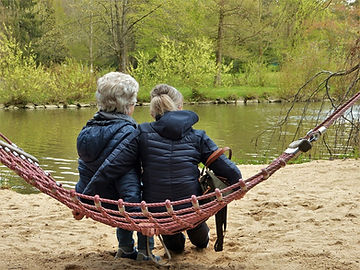
Memory Loss and Forgetfulness- What Can You Do?
At Libertana, we provide patients with more than tangible care. We support those around the patient and offer guidance while they navigate unchartered territory. With this goal in mind, we believe information is the best tool that a family can have when taking care of a loved one grappling with memory loss.
Nearly 16 million people in the U.S. experience memory loss, primarily older adults over the age of 65. When memory loss presents itself, it can be confusing and shocking for the person affected and those around them. Understanding the causes, effects, and what to do about memory loss can make this experience less daunting.

Memory loss can be caused by a plethora of factors, including (but not limited to):
- Sleep deprivation
- Emotional trauma
- Brain tumor/infection
- Mental disorders
- Migraine
- Lack of oxygen to the brain
- Vitamin B-12 deficiency
- Head injury/concussion
And more…
To help navigate memory loss, one should look out for worrying symptoms that indicate your loved one should see a doctor. Some things to look out for when considering medical assistance are: if the person’s memory loss is effecting their daily life, their safety, if the memory loss is progressing, and/or if other physical symptoms appear. Some more subtle factors to watch out for include:
- Difficulty following directions
- Getting lost in familiar locations
- Repeating the same questions
- Confusion
- Struggling with proper hygiene
While caring for someone who is experiencing forgetfulness and/or memory loss, it is important to consider how you can be of assistance to them at home. If you’re supporting someone, we recommend the below activities to stimulate their brain:

- Showing them familiar objects and photos
- Playing them familiar music
- Write down important tasks for them (like when they should take medicines)
- Ensure that their necessary accessories are in the same place every day (wallet, keys, phone)
- Help them make a calendar with helpful reminders
Finally, setting up and attending a doctor’s visit with your loved one is recommended. You may be able to recall helpful information for them and set up additional visits that you can attend together. Several tests will likely be performed to figure out the root of the patient’s memory loss, and treatment will depend on the results of these tests. Make sure to be supportive of this process, as it can be overwhelming.
Libertana wishes you the best with taking care of your loved one, and hope this helps provide some clarity. To learn more, we recommend visiting:
National Institute on Aging: Memory, Forgetfulness, and Aging: What’s Normal and What’s Not?

